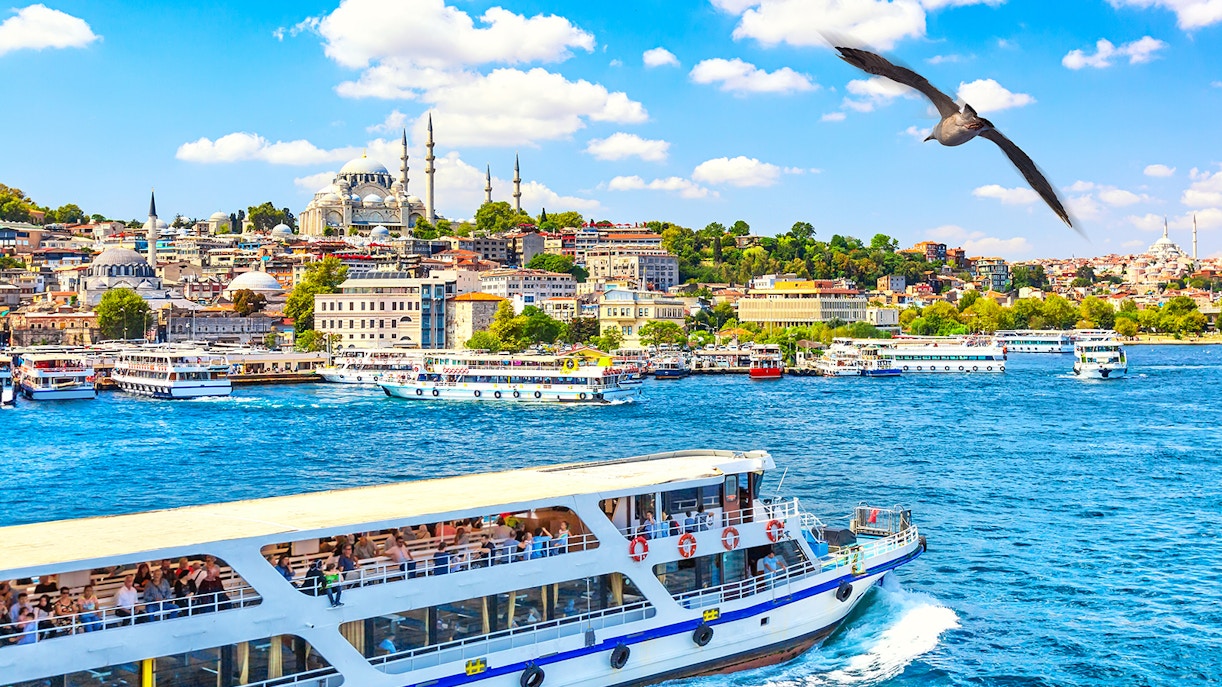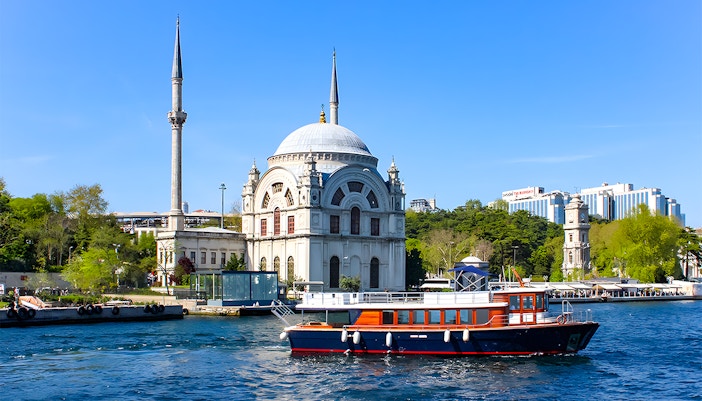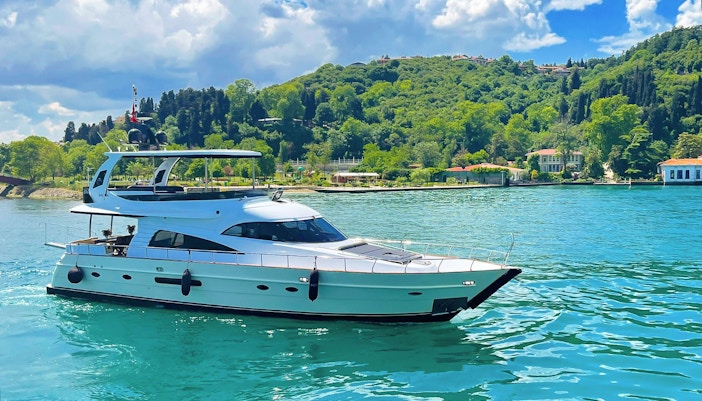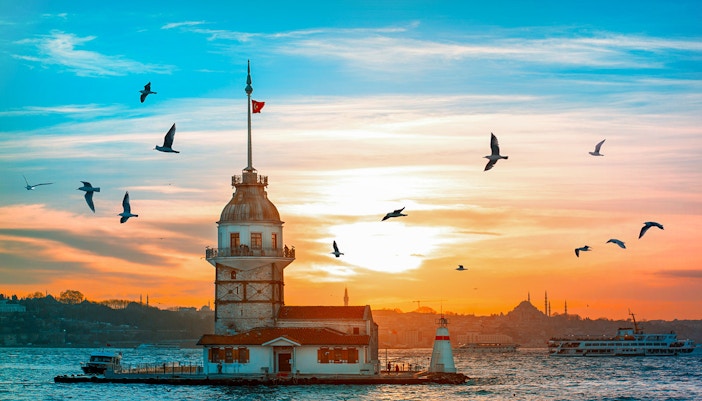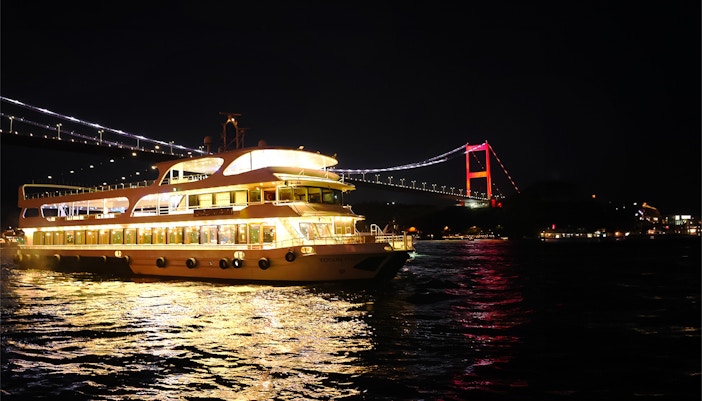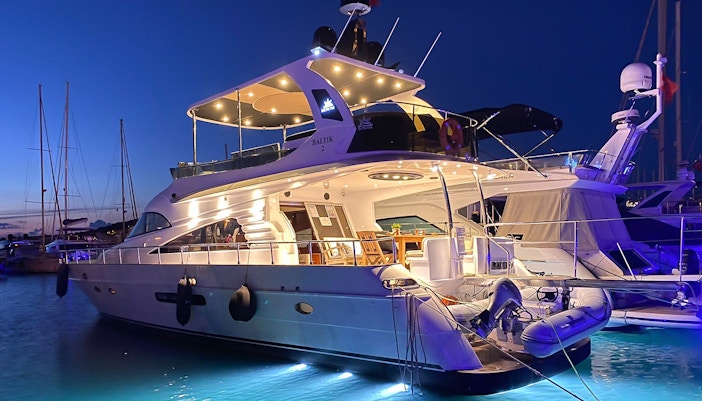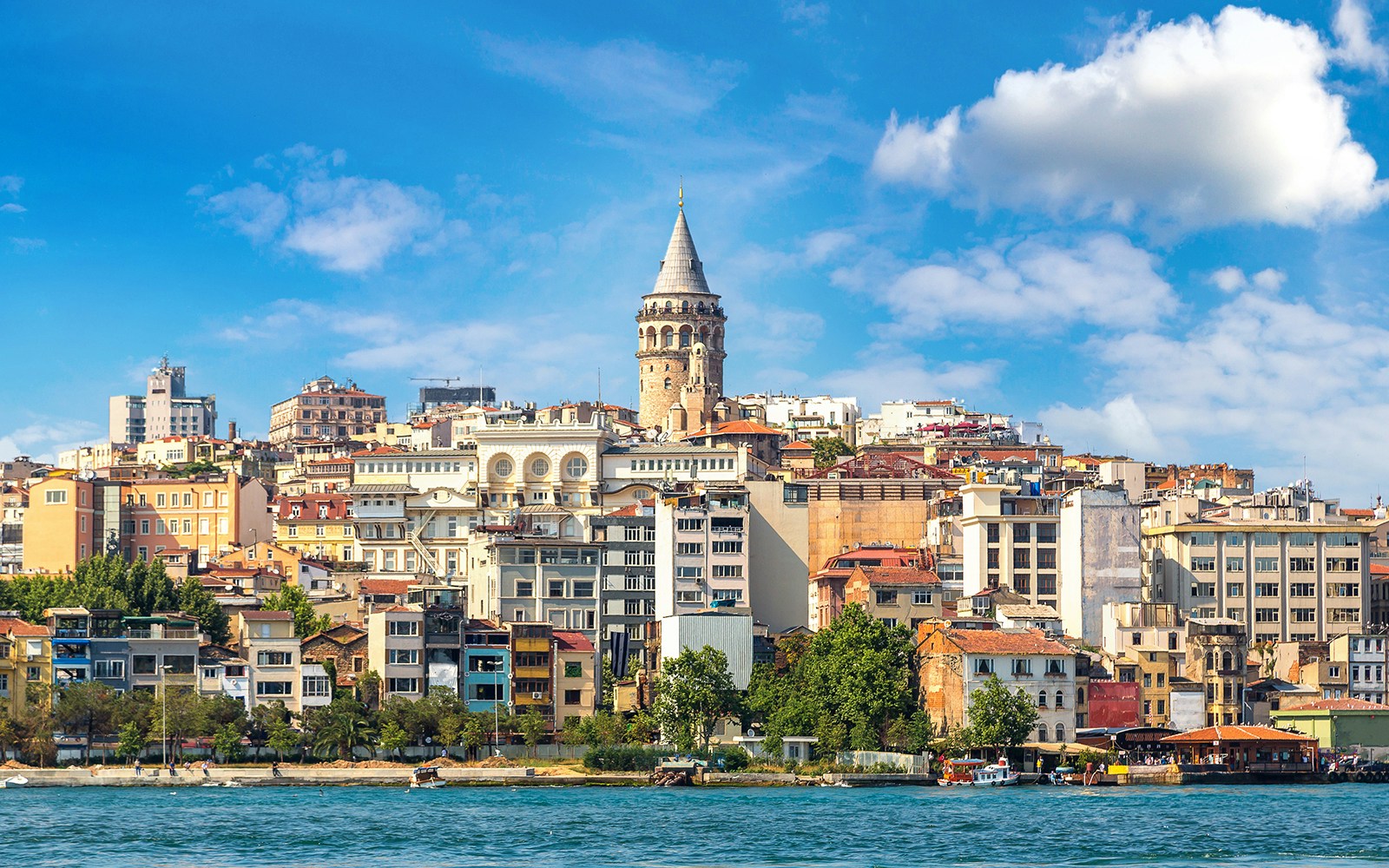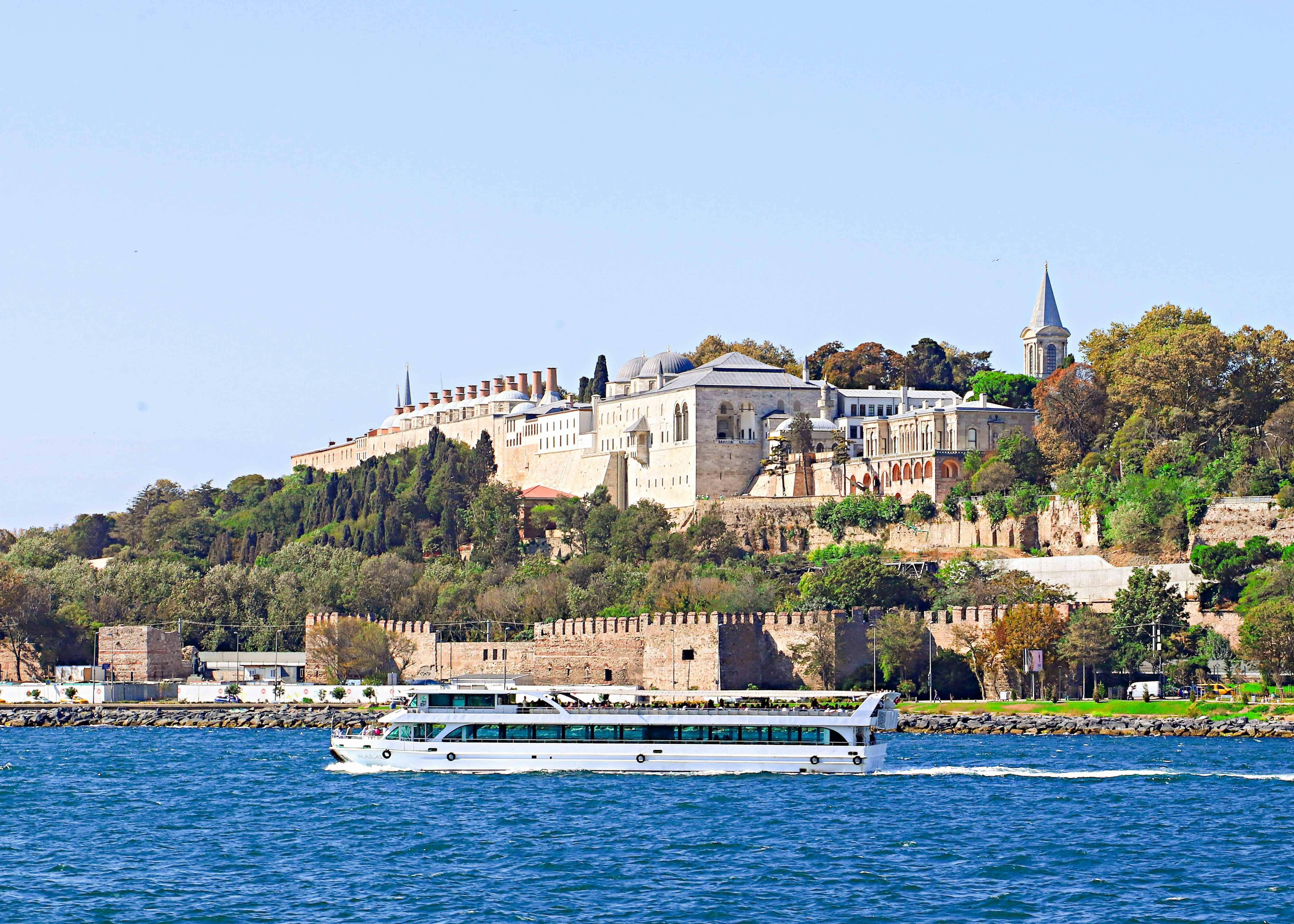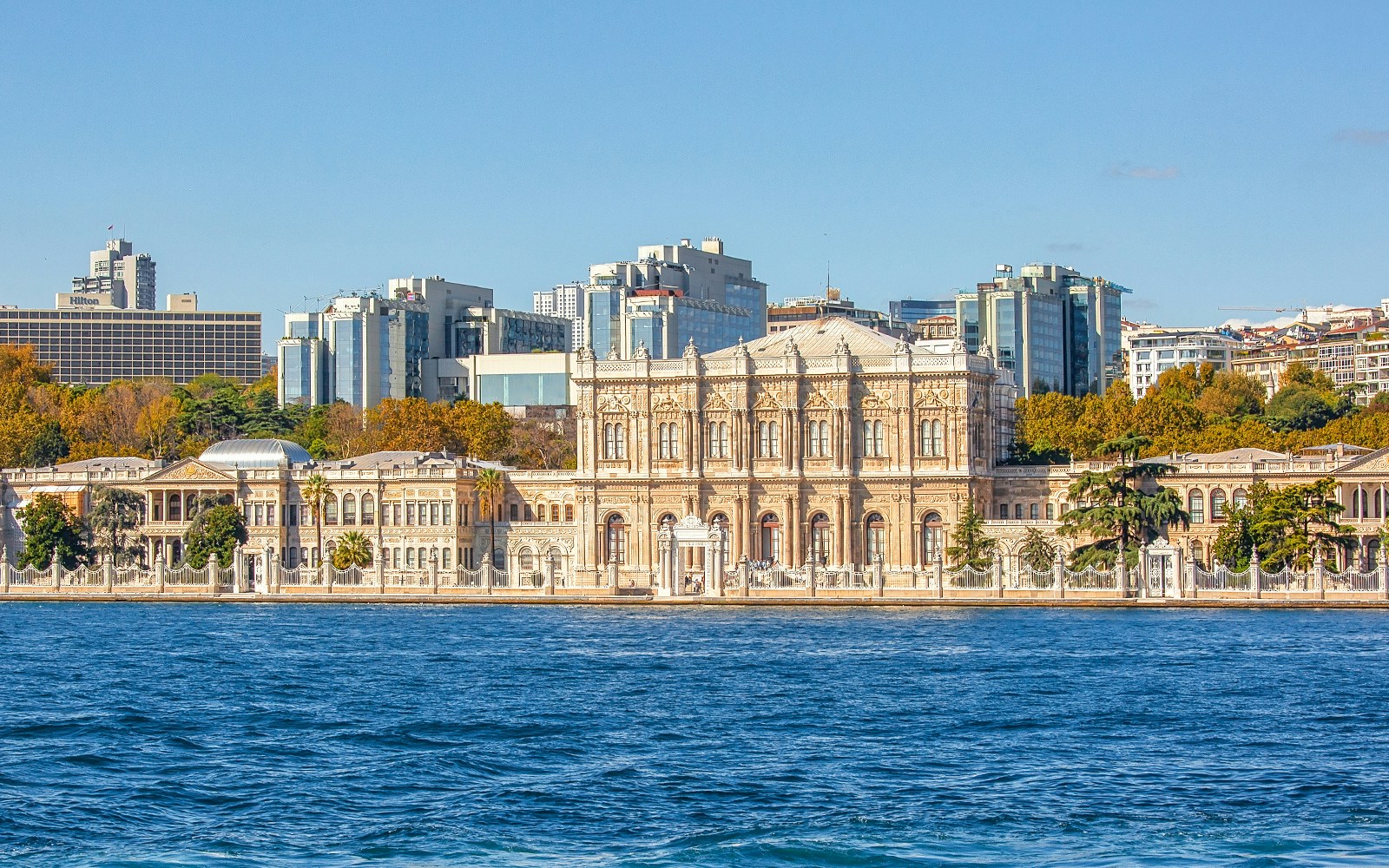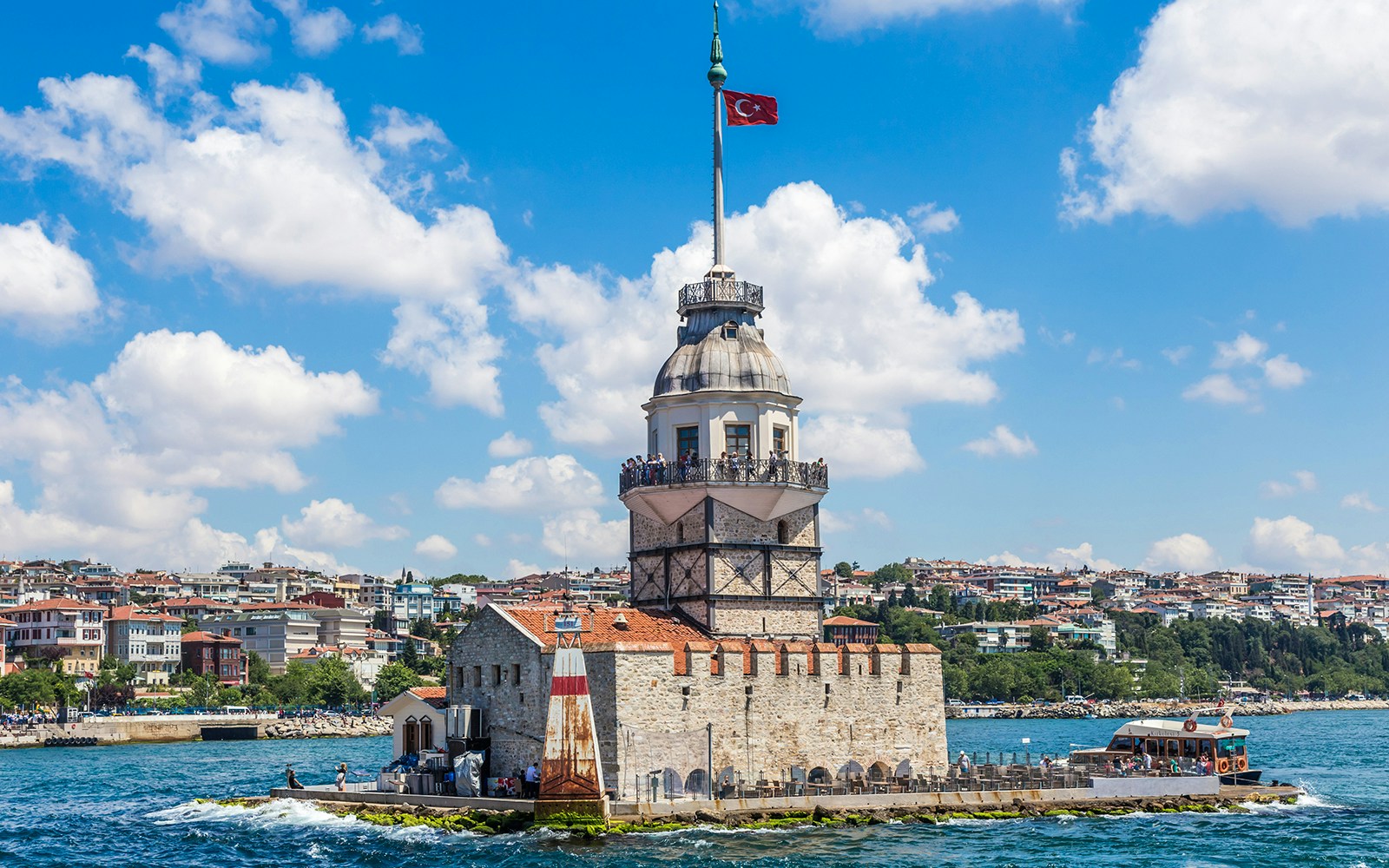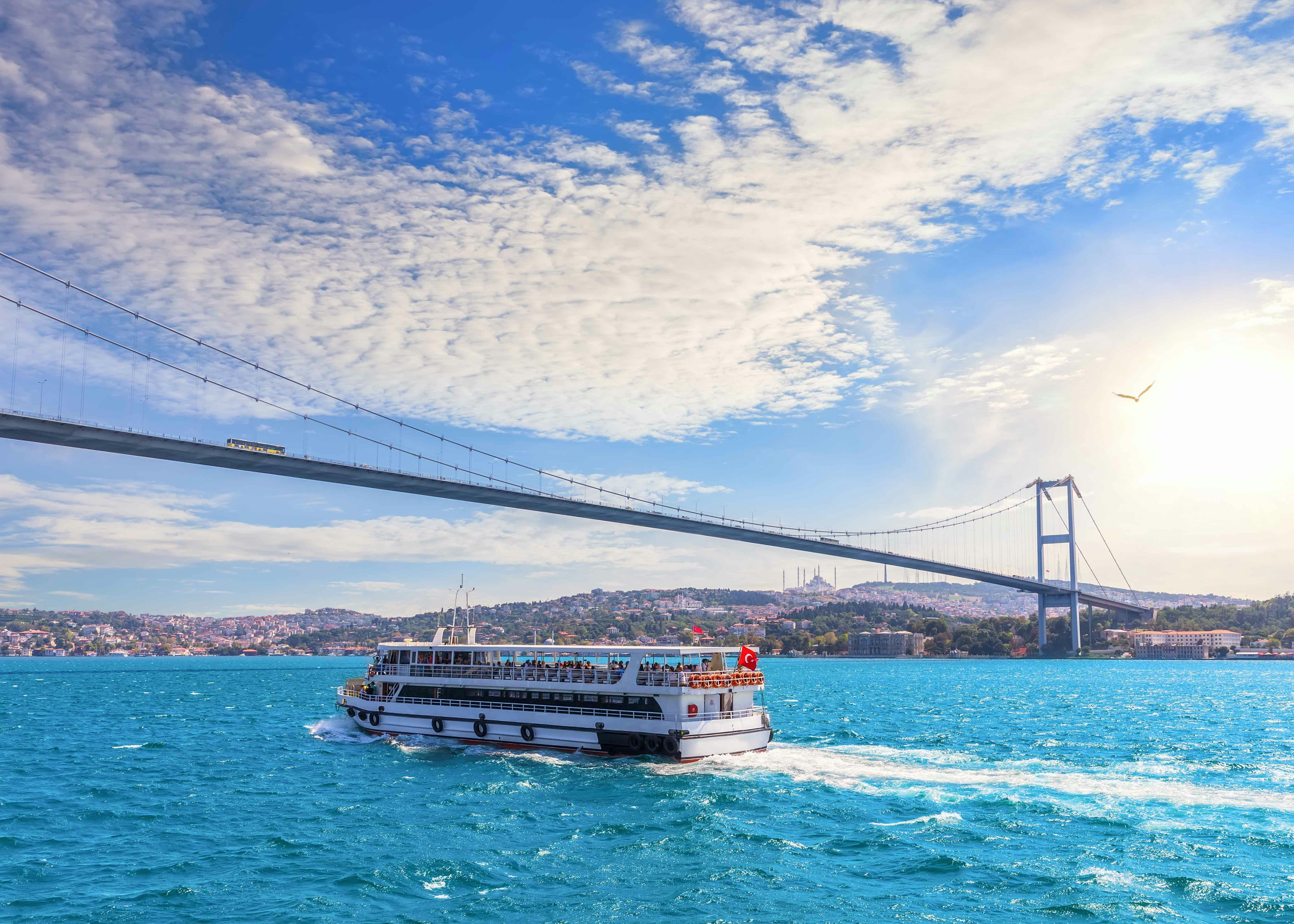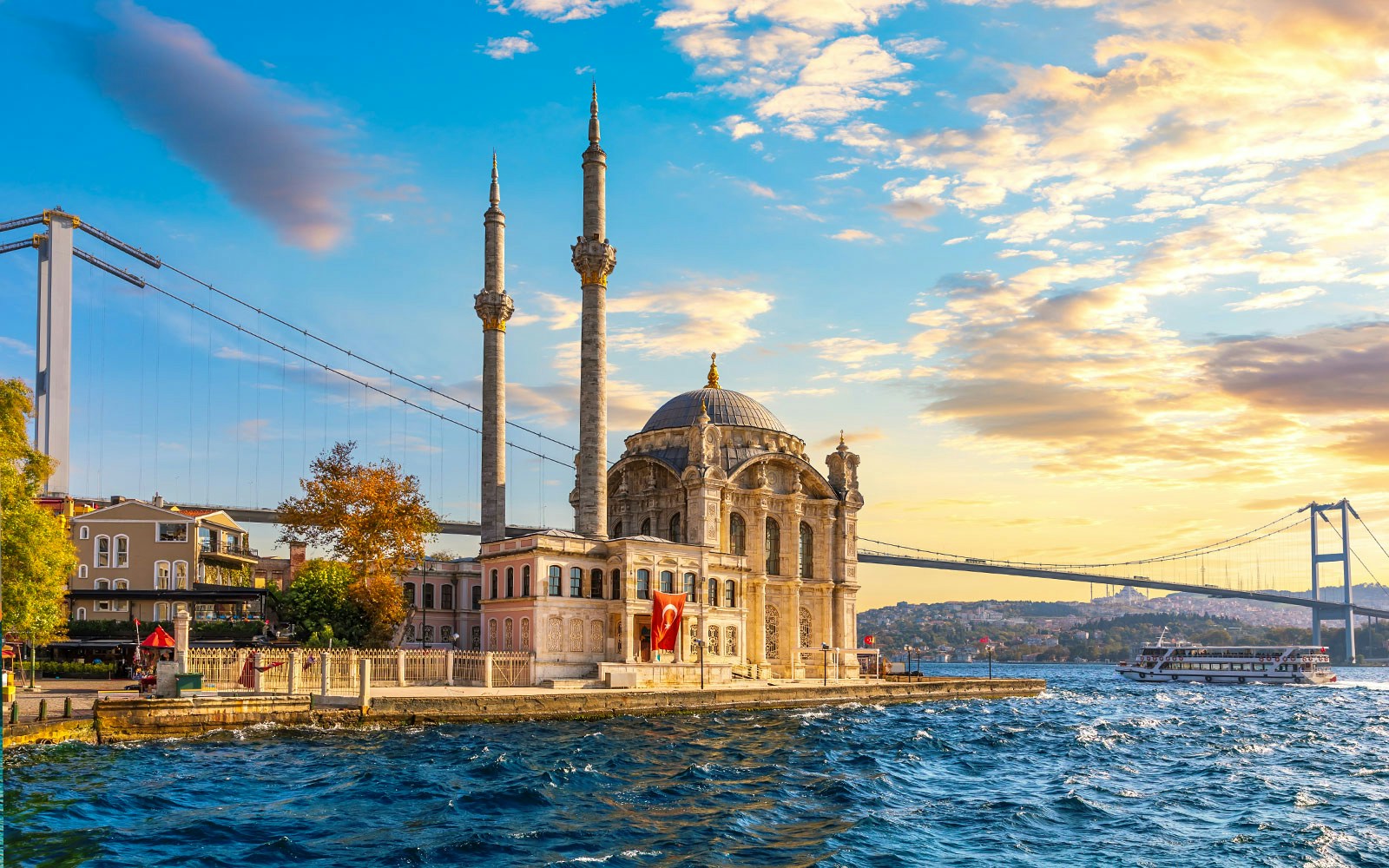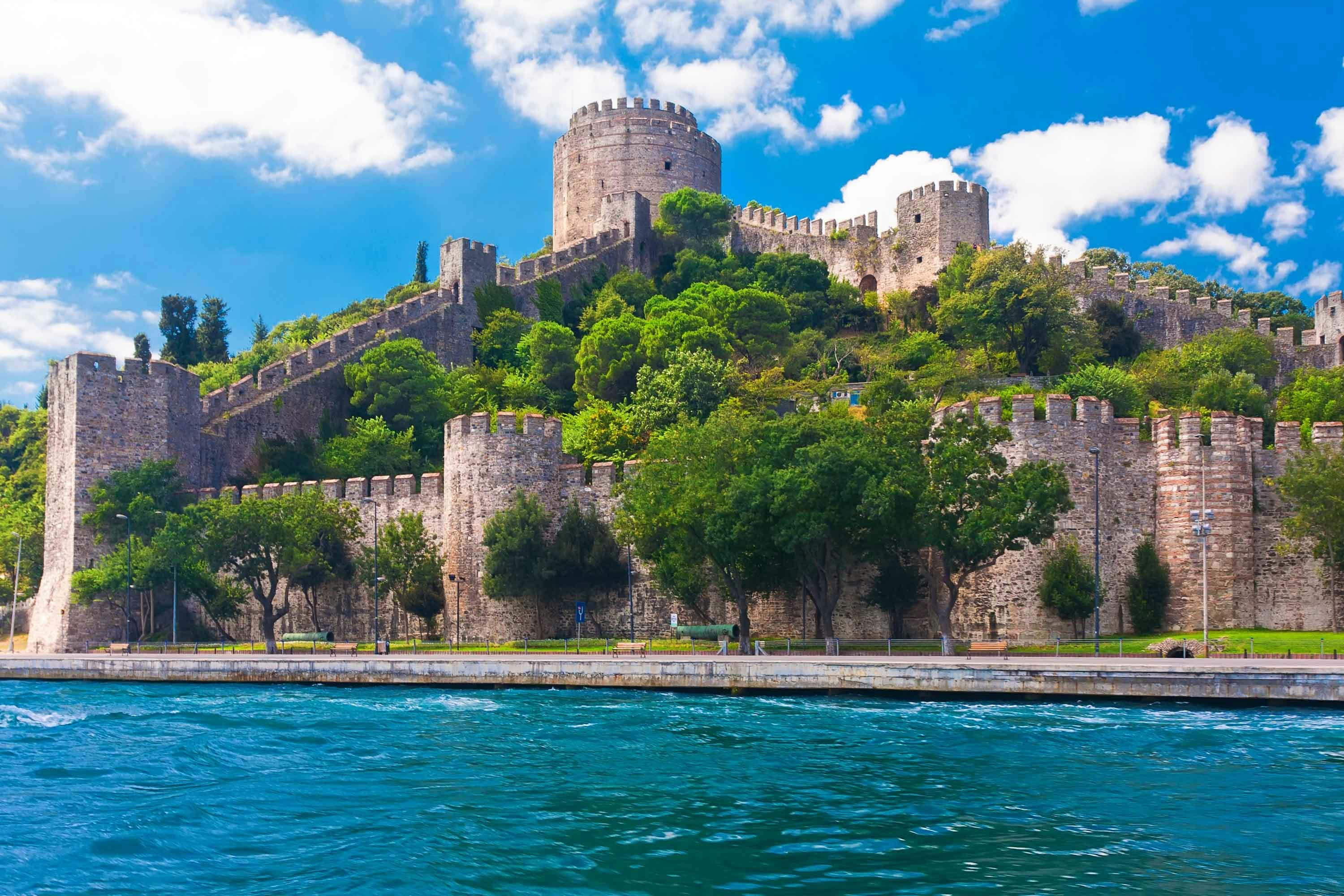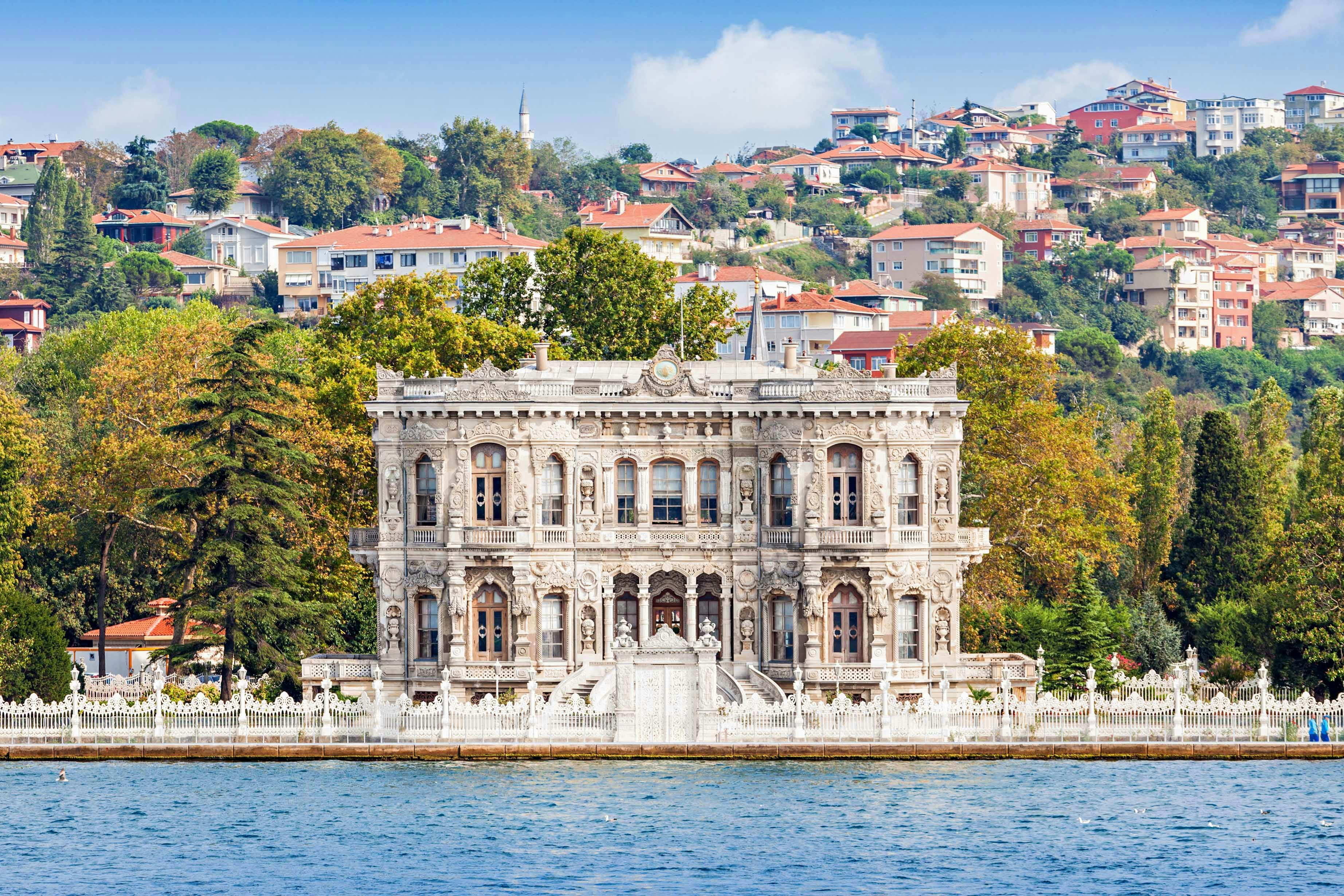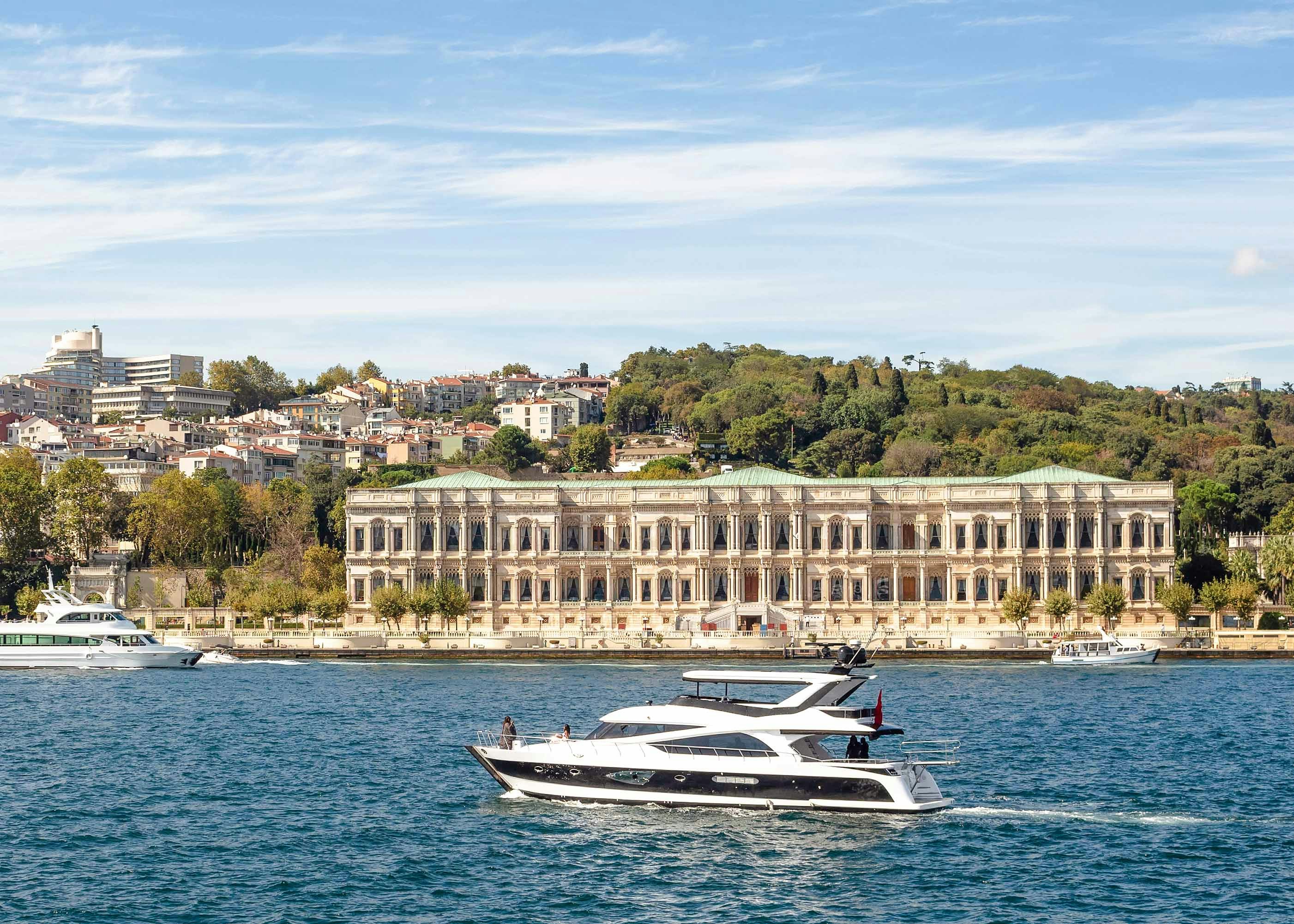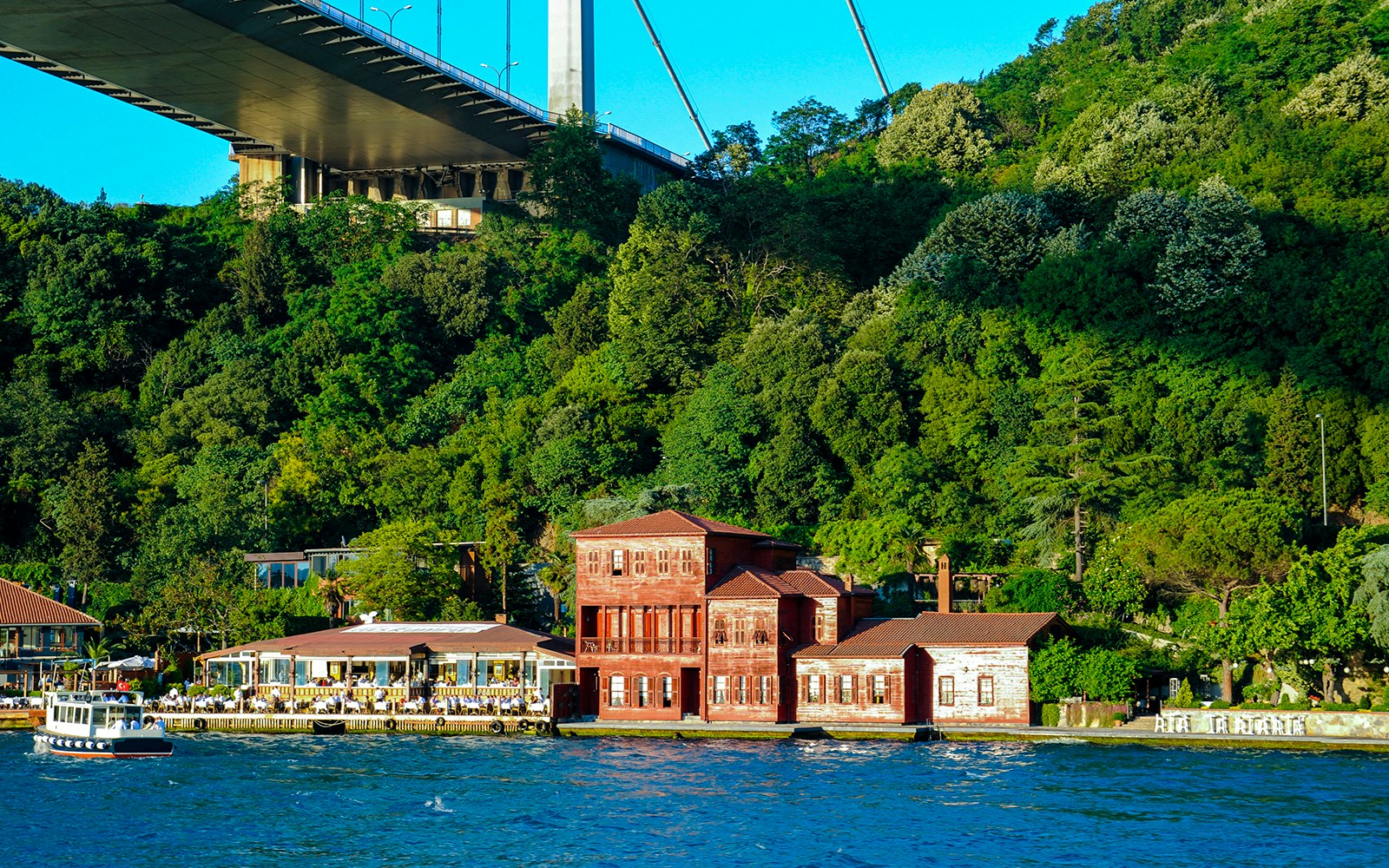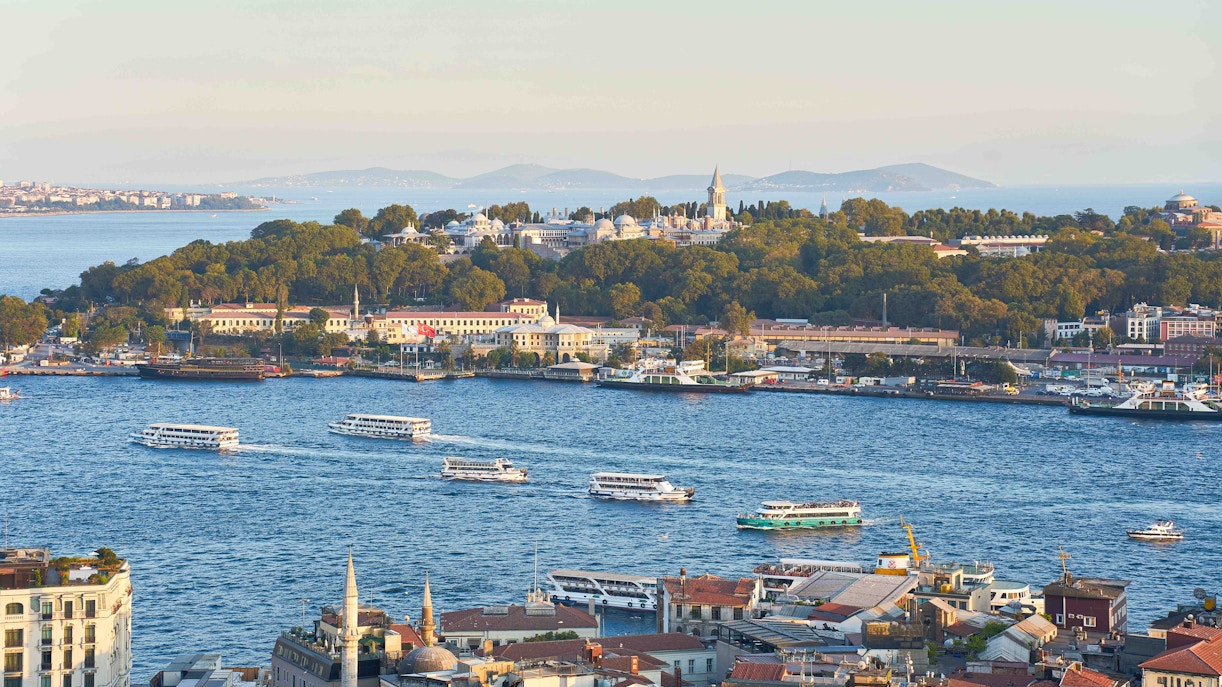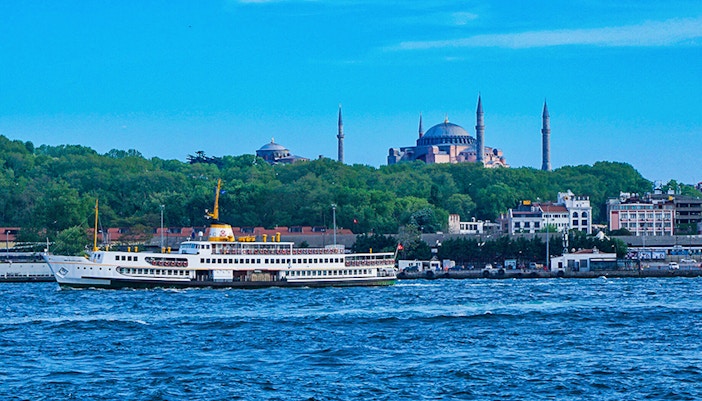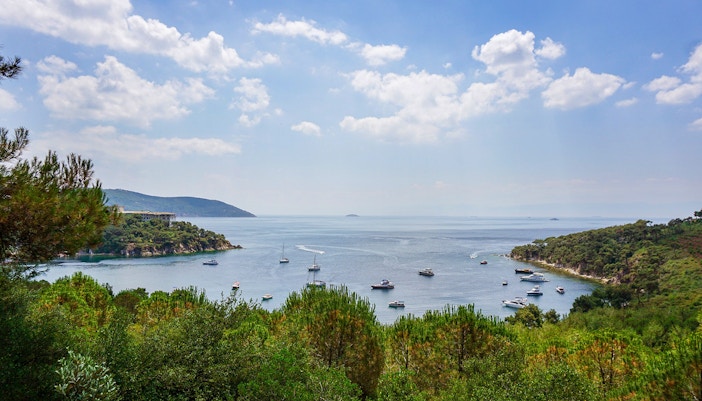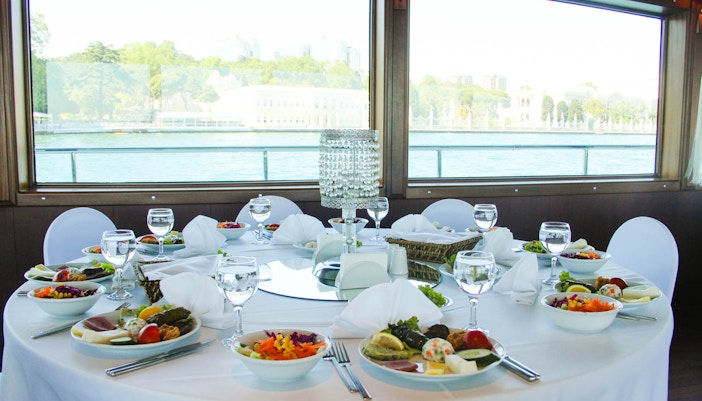- Also known as: “İstanbul Boğazı” or “Karadenız Boğazı” in Turkish.
- Point of origin: The Bosphorus Strait is a natural water channel in northwestern Turkey, separating Thrace (in Europe) from Anatolia (in Asia). The strait flows continuously between the Black Sea and the Sea of Marmara, the two water bodies it connects, without a specific point of origin or end.
- Point of entry: Kabatas Pier is a popular starting point for Bosphorus cruises. It is located near Taksim Square and is easily accessible by tram in case your ticket does not include hotel transfers.
- Types of cruises: Sightseeing cruises, lunch cruises, sunset and evening cruises, dinner cruises, Princes' Islands cruises, and combo cruises.
- Popular sights on the Bosphorus Strait: Galata Tower | Dolmabahce Palace | Topkapi Palace | Hagia Sophia | Blue Mosque | Ciragan Palace | Ortaköy Mosque | Bosphorus Bridge | Beylerbeyi Palace | Üsküdar | Maiden's Tower (Kiz Kulesi) | Fatih Sultan Mehmet Bridge | Küçüksu Palace | Rumeli Fortress | Anatolian Fortress
Quick guide to the Bosphorus Strait
